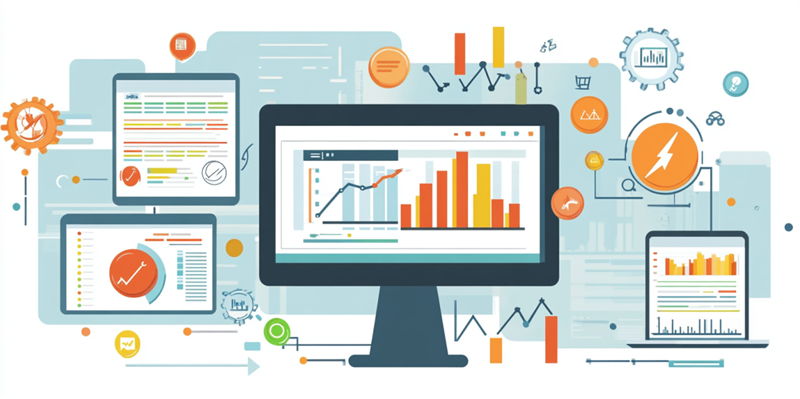In an increasingly competitive marketplace, understanding and leveraging lead scoring can be the key to enhancing the effectiveness of your sales efforts. By prioritizing potential customers based on their interactions and behaviors, businesses can optimize their marketing strategies and ultimately drive greater conversions. This article delves into the methodologies, benefits, and tools of lead scoring, providing a comprehensive guide to mastering this powerful technique.
Understanding Lead Scoring: A Necessity in Modern Sales
Lead scoring is a methodology utilized by sales and marketing teams to evaluate the potential of leads—prospective customers—based on their behavior, interactions, and demographic information. It helps to determine where each lead stands in the buying process, enabling teams to prioritize their efforts effectively. The primary goal of lead scoring is to convert higher quality leads into customers, thereby optimizing resource allocation.
To implement lead scoring, companies first need to define what constitutes a ‘qualified lead.’ This requires alignment between the sales and marketing teams to agree on criteria based on historical data and business objectives. Such criteria often include job titles, company size, geographical location, and behavior metrics like website visits or email engagements.
Once the definition is set, the process moves to data collection. Here, companies gather valuable information about leads through various channels such as web analytics, social media interactions, and direct communications. This data forms the foundation for assigning point values to different actions and attributes, enabling a systematic evaluation of each lead’s potential.
Setting Up Effective Lead Scoring
Creating a successful lead scoring system involves several steps, starting with establishing a ranking scale. This scale translates lead behaviors and attributes into numerical values that reflect their likelihood of purchasing. Actions like attending webinars, downloading resources, or filling out forms might be assigned higher points than less engaged activities.
Tools and software play a critical role in simplifying this process. Many Customer Relationship Management (CRM) systems come integrated with lead scoring capabilities. Vendors like Salesforce, Oracle, and Microsoft offer robust tools that streamline data integration and score assignment. These tools also allow for customization, enabling businesses to tailor the scoring parameters to their unique needs.
It’s important to continuously update the lead scores as new data becomes available. Behavioral changes over time can significantly impact the likelihood of conversion, making it essential to reflect these shifts in your scoring. Given the dynamic nature of lead interactions, automated systems are invaluable for maintaining up-to-date scores and optimizing the sales funnel.
Deciphering Key Lead Scoring Metrics
Lead scoring relies on a mixture of demographic and behavioral metrics to form a holistic view of each lead’s potential. Demographic metrics may include the lead’s job title, industry, company size, and geographic location. These factors help in understanding the fit and relevancy of the lead to the company’s target market.
Behavioral metrics focus on interactions and engagements. Key indicators include email open rates, web page visits, time spent on specific sections of the site, and responses to marketing campaigns. Higher engagement scores often point to warmer leads who are more likely to move down the sales funnel.
Understanding the source of information can also be crucial. Leads derived from organic search, for example, may have different scoring implications than those obtained through paid advertisements. Similarly, social media interactions can reveal levels of interest and tentative buying intentions, providing additional layers of insight.
Leveraging Tools for Optimal Lead Scoring
To effectively manage and execute lead scoring, leveraging advanced tools and CRM systems is essential. These systems not only track lead activities but also integrate seamlessly with other marketing and sales technologies. Tools from vendors like Bitrix24, Freshworks, and Pipedrive offer various functionalities that can be customized to fit an organization’s needs.
When choosing a lead scoring tool, ensure it supports data import and export capabilities, comprehensive reporting, and integration with existing systems. The ability to tweak and refine scoring models in response to changing market conditions or business objectives is also a critical feature.
Automation is another vital aspect. Manual tracking and updating of lead scores can be time-consuming and prone to errors. Automated systems reduce the burden on sales and marketing teams, allowing them to focus more on strategic activities and less on routine tasks.
Implementing and Refining Lead Scoring Strategies
In today’s fiercely competitive market, mastering lead scoring can significantly boost your sales efforts. Lead scoring involves ranking potential customers based on their interactions and behaviors, enabling businesses to fine-tune their marketing strategies for maximum conversion rates. Understanding this process is crucial; it allows companies to identify which leads are most likely to convert into customers.
This article covers the methodologies, benefits, and tools associated with lead scoring. You’ll learn about the various techniques used to evaluate leads, from tracking website visits and email engagement to analyzing their overall interaction with your brand. By leveraging these insights, businesses can prioritize efforts towards high-potential leads, ensuring that time and resources are allocated more efficiently.
Moreover, the benefits of effective lead scoring extend beyond just higher conversion rates. It can enhance sales and marketing alignment, improve productivity, and provide a more personalized customer experience. Tools like customer relationship management (CRM) software and marketing automation platforms come with built-in lead scoring capabilities, making it easier to implement this strategy.
In essence, lead scoring is not just a buzzword but a vital practice that can help you stay ahead of the competition. By mastering lead scoring, you can transform your sales approach, making it more targeted and effective. Whether you’re a small startup or a large enterprise, understanding how to evaluate and prioritize your leads can drive substantial growth and success.

